[THE K-WAVE] Meet Su-Min: One of the First News Editors for BBC's Korean Service
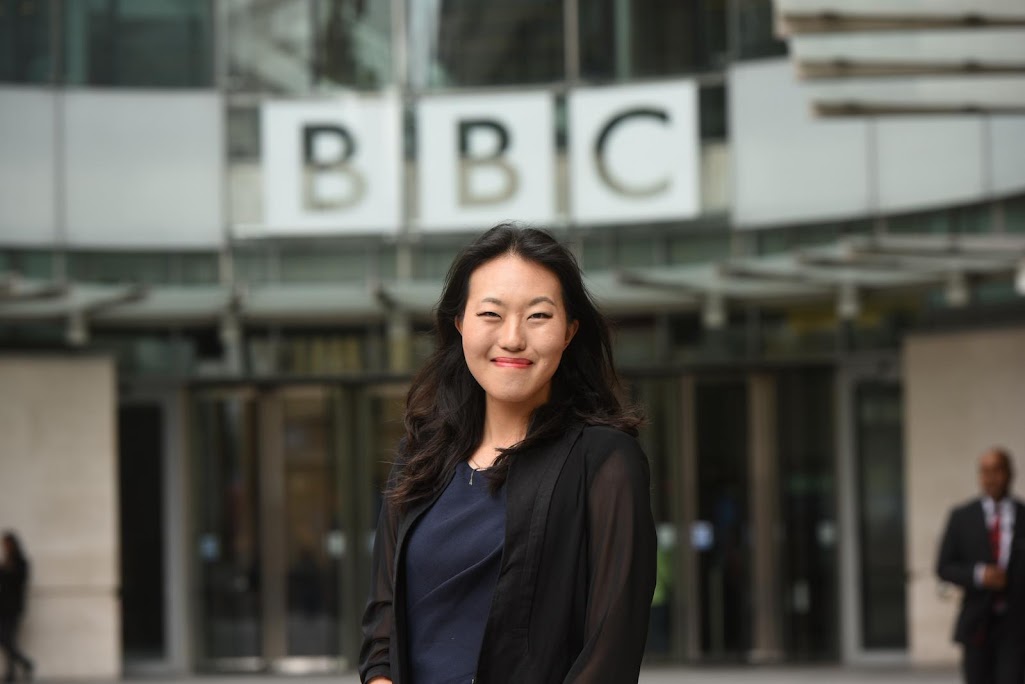
The next installment we have for the The K-wave series is perhaps one of our most inspiring, poignant, and insightful looks into Korean culture and subsequent industries as we know it today.
Meet Su-Min, one of the first news editors for BBC’s Korean service. This interview will not only resonate with those interested in Korea but also for those working within the media. Her story sparks a conversation about sticking to your core beliefs, the messages you truly want to convey, and the stories you wish to tell.
Su-Min’s story details proof that belief and hard work can take you far, as well as giving us a view of Korea's perception before the rise of the Hallyu wave as we know it today. A story we perhaps don’t hear as much in comparison to K-pop and K-drama-esque views.
Her latest venture - of many - is her workshop on moving to South Korea and the key information needed. At The K-Wave, we are privileged to be able to speak to such an accomplished and intelligent woman, who is nothing short of an inspiration to all.
Kpopwise: Let's begin with your journalism work, where you became the very first news editor of the BBC’s Korean Service. What were your beginnings, and how did you get a role in that field?
Su-Min: I landed the Head of Korean Service role quite unexpectedly. I knew the BBC was considering launching a Korean service a few years before its official announcement, so I set up a Google Alert and waited. When the alert finally popped up saying the BBC was recruiting, I applied immediately.
My initial plan was to apply for a junior producer role—I was working as a video journalist in Hong Kong at the time, and the editor position felt way above my pay grade. But at that moment, the only opening was for the editor role (producer positions came later), so I applied as a kind of ‘practice’. I never imagined I’d get it! Honestly, even after joining, for the first year I thought the BBC had made an admin error and hired the wrong person.
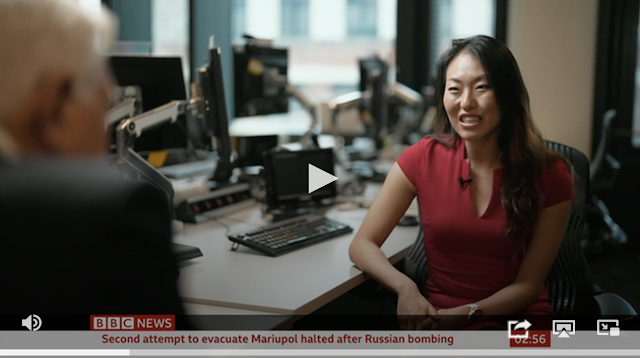
Being one of the youngest editors in the World Service Languages was pretty scary, not to mention managing team members who had more experience than me. That was challenging in a Korean cultural context, where seniority is often tied to age. It taught me to trust my voice, set boundaries without apology, and turn challenges into opportunities for growth.
Kpopwise: When you first started, did you feel extra pressure to create content at a time when Korean culture wasn’t as popular, and how have people’s views of Korea changed as the country has become more visible in Western media?
Su-Min: Actually, I felt it was an opportune time. The popularity of K-pop and K-drama was rising, and Korean geopolitics was frequently on the international news agenda—North Korea’s missile launches and the historic summits with South Korea and the U.S. It felt like the world’s eye was on Korea, and the BBC Korean Service launched at exactly the right moment.
The change still amazes me. When I first came to the UK in 1998, most people had barely heard of Korea. I’d get questions like, “What even is Korea?” or “Do they have roads there?” Someone once insisted Korea was a city in Japan—even after I told them I was from Korea! I had friends marvel at my rice cooker and ask if I’d ever tried tofu.
Things have changed so much since then. Today, Korea is synonymous with global pop culture, innovative storytelling, and vibrant food. Seeing that transformation—and being part of shaping how Korea is understood—has been incredible.
Kpopwise: You’ve appeared across BBC podcasts, radio, and TV to give talks on Korea. What do you feel is most misunderstood about Korea globally, and how do you work to change that perception?
Su-Min: When you speak about Korea on an international broadcaster for various programmes, you get to discover what global audiences are curious about and what surprises them.
For example, when former President Yoon Suk Yeol declared martial law in December 2024, I had the chance to walk audiences through South Korea’s modern history. Many were stunned to learn that South Korea endured multiple periods of military and authoritarian rule, and that its democratic governance only began in 1988.
Today, people often associate South Korea with cutting-edge technology, vibrant culture, and a booming entertainment industry. So discovering that this modern, high-tech nation emerged from decades of dictatorship is a real shock for many. My role is to bridge that gap – by providing historical context and nuance, I help audiences see Korea not just as a pop-culture powerhouse but as a country shaped by resilience and complex political evolution.
Kpopwise: When working on radio and digital services to give insights to a global audience, how do you approach delivering content in comparison to how you would in Korea?.
Su-Min: The biggest difference is perspective. For a global audience, I focus on context—explaining not just what’s happening in Korea, but why it matters internationally. That means breaking down cultural references, historical background, and political nuances that Korean audiences would already know.
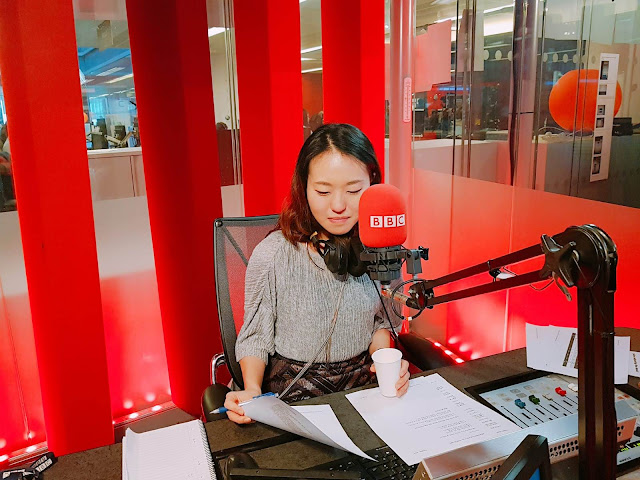
When I unpack stories for Korean audiences, my priority is balance and impartiality. Trust in news in Korea is incredibly low, and journalistic practices aren’t as rigorous as at the BBC. Many Korean outlets simply copy and paste each other’s articles without independent fact-checking. When I was Head of the Korean Service, my goal was to tell stories with integrity and build audience trust—because credibility is the foundation of journalism.
Kpopwise: What made you want to work in journalism, and how do you feel the industry has changed since you began?
Su-Min: It was never my dream to work in journalism—I simply fell into it. I graduated with a BA in Film Production and spent a year desperately trying to get a job on a film set. Nothing worked out, and day by day I grew miserable and depressed in my incredibly unfulfilling retail job at Claire’s Accessories. Eventually, I gave up on working in the media and decided to return to Korea, study at university again, and become a translator.
Then my dad found an advert in a Korean newspaper for a news producer at KBS’s London bureau. They needed someone fluent in Korean and English who could edit videos. I applied thinking, “This is my last shot in the media—if it doesn’t work, I’m leaving for Korea.” And I got the job! That moment completely changed the trajectory of my career.
The industry has transformed dramatically since then. Social media and smartphones have reshaped how people consume content—shifting from scheduled broadcasts to instant, algorithm-driven snackable feeds. Broadcasters are constantly trying to keep up with these changes, competing for attention in a world where audiences expect speed, personalisation, and interactivity.
For me, the challenge is to embrace innovation while holding on to the values that make journalism matter: truth, trust, and context.
Kpopwise: With the rise in Hallyu, what has surprised you the most about how it has been received by a global audience?
Su-Min: “Well, I never!” is my short answer!
As a migrant child in the UK, I always felt like an outsider. The foods I ate at home were alien to most of my friends (fermented cabbage? Eww!) —and the films and TV shows were full of cartoonish stereotypes of Asians: Japanese schoolgirls squealing in high-pitched voices and short, spotty-faced Chinese boys who were great at maths but hopeless at dating. Among all these caricatures of East Asia, Korea was nowhere to be found. I once saw a TV show supposedly set in Korea, but everyone was wearing Vietnamese straw hats!
So to witness this global wave of K-dramas and K-pop still feels surreal. What surprises me most, though, is the popularity of Korean food in the West—gochujang being used by celebrity chefs, and bold spicy flavours embraced rather than shooed away. The very tastes that once made me feel different are now celebrated.
As a big foodie, I love how I can now find Korean street food stalls and restaurants all over London. It’s incredible to see the things that once made me feel like an outsider now shaping global culture—and to feel proud that Korea’s identity is finally being appreciated for its richness and depth.
Kpopwise: You also work closely with the Korean Cultural Centre London, KOCCA, and events like the K-Culture Forum at the RSA. How do you see cultural exchange shaping the narrative of Korea abroad?
Su-Min: Cultural exchange plays a huge role in shaping how Korea is understood abroad. When I work with organisations like the Korean Cultural Centre London (KOCCA) or events like the K-Culture Forum at the RSA, I see first hand how these platforms go beyond entertainment—they create spaces for dialogue, context, and deeper understanding.
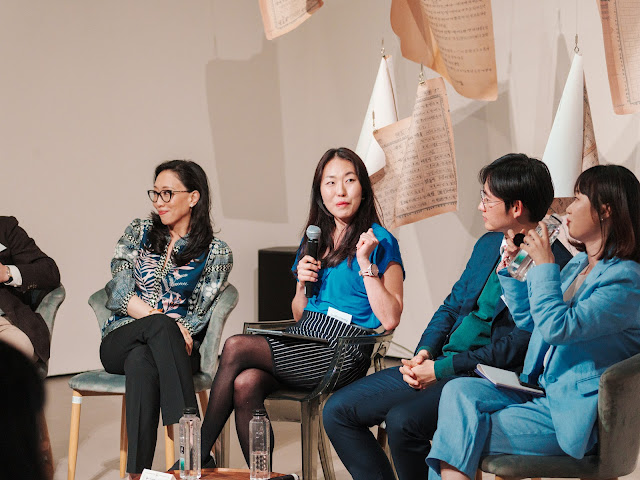
Hallyu often starts with K-pop or K-dramas, but cultural exchange introduces the layers behind it: history, language, food, design, and values. It shifts the narrative from “Korea as a trend” to “Korea as a culture with depth and diversity.” These collaborations help audiences see Korea not just as a pop phenomenon but as a country with rich traditions and a dynamic future.
For me, that’s the power of cultural exchange—it turns curiosity into connection and stereotypes into stories that matter.
Kpopwise: London in particular has become a hub for Korean culture, be it through cultural events or K-pop. Why do you think it has become such a beacon for creatives to get involved in?
Su-Min: London has always been a city that thrives on diversity and creativity, and that’s a big part of why it’s become such a hub for Korean culture. It’s a global crossroads—artists, musicians, and innovators from all over the world come here because the city embraces new ideas and celebrates cultural exchange.
For Korean creatives, London offers something unique: an audience that’s curious, open-minded, and eager to engage with different perspectives. Whether it’s K-pop concerts, film festivals, or food markets, there’s a real appetite for Korean culture here. And because London is home to influential institutions and media, it’s also a strategic place to amplify Korea’s voice internationally.
In short, London isn’t just a stage—it’s a launchpad. It gives Korean culture the space to be experienced, understood, and celebrated in ways that ripple far beyond the city.
Kpopwise: Speaking of K-pop, you were director of partnerships at FrontRow, working on sponsorships for SM Town Live in London. How did that come together, and what was the most enjoyable aspect of collaborating with others?
Su-Min: I started working with FrontRow when I was director of the London Hallyu Festival. Our team was planning to bring a K-pop band as an opening act for the festival, and that’s how I first connected with FrontRow. From there, the partnership grew, and eventually I worked on sponsorships for SM Town Live in London.
The most enjoyable part was the creativity involved—figuring out how to blossom partnerships and turn them into an unforgettable fan experience. I also loved the collaborative energy of working with people from different industries, each bringing unique ideas to the table. And honestly, the adrenaline of problem-solving under pressure was exciting—big events always come with challenges, and finding solutions together made the experience even more rewarding.
Kpopwise: What excites you most about bringing Korean creative content to international stages like SM Town Live?
Su-Min: What excites me most is the scale and impact of bringing Korean creative content to international stages like SM Town Live. It’s not just about music—it’s about creating a cultural moment that connects people across languages and borders. Seeing thousands of fans in London singing in Korean is powerful because it shows how art can transcend geography.
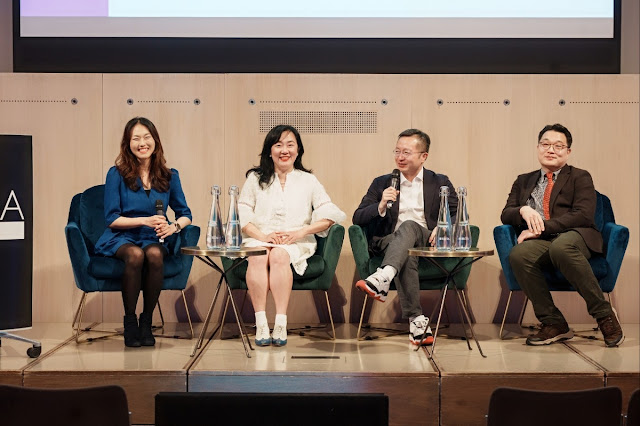
I also love the creativity involved in making these events happen—building partnerships, designing experiences, and finding ways to make the show feel authentic yet accessible to a global audience. For me, it’s about more than entertainment; it’s about storytelling and cultural exchange on a massive scale.
There’s something incredibly rewarding about watching Korean creativity take centre stage and knowing you played a part in shaping that experience.
Kpopwise: You recently launched your first talk series, “K-Dream Starter: Your guide to kickstart your life in Korea.” It was set out to help people who plan to move to Korea for work or to study. What inspired you to start the idea in the first place?
Su-Min: My colleagues and I wanted to create something genuinely useful—an event that didn’t just entertain but helped people turn their passion into action. We noticed more and more people signing up for Korean language classes and even making the bold decision to move to Korea for work or study. So it felt like a no-brainer to design a talk series that gives practical tools and guidance for those taking that step.
The goal was simple: to empower people, give them the resources they need, and help them feel confident about starting a new chapter in Korea.
Kpopwise: For those who were unable to attend but are still interested in the topic, what would you say are the key things they must factor in before taking such a leap? For those who are still undecided about moving or studying in Korea or perhaps even visiting for the first time, what advice would you give?
Su-Min: Ten years ago, I packed up and moved to Hong Kong with no job lined up. I didn’t do much research, and only after arriving did I realise how expensive it was and how tough it would be to find work as a journalist without speaking Cantonese. It took me seven months to land a job—I had one month left on my visa and £1,000 in my account.
The takeaway? Do your research. Understand the cost of living, visa requirements, and job market. Reach out to people already living there—whether through social media, alumni networks, or professional groups—and don’t be shy about asking for advice or help.
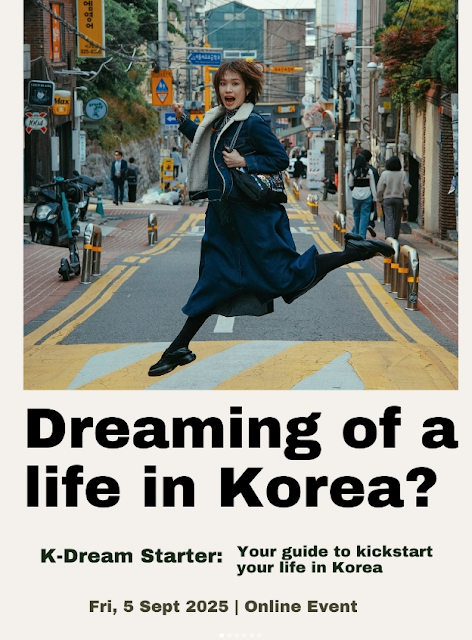
While I was completely unprepared for what Hong Kong threw at me, it turned out to be one of the best decisions I’ve ever made. I had to sink or swim—so I learnt to swim. Moving abroad is a huge shift, but the growth, perspective, and relationships you gain are priceless.
Don’t let fear hold you back. But don’t go in blind either. Research, plan, and then take the leap.
And practically speaking:
● Visit first, if you can. Even a short trip can help you get a feel for the place.
● Take a language class—even basic Korean will go a long way.
● Join online communities where people share real experiences.
● Keep a financial buffer. Things rarely go exactly as planned.
● Be open to discomfort. It’s part of the process—and it’s where the magic happens.
Kpopwise: Why do you think more people today are interested in moving abroad, especially to Korea?
Su-Min: There’s been a real shift in how people see the world and what they want from it. More and more, people are looking beyond their home countries for inspiration, opportunity, and a sense of adventure. Korea has captured a lot of attention—not just because of its tech scene or economic growth, but because of its cultural impact.
K-dramas and K-pop have played a huge role in that. They’ve made Korean culture feel familiar and emotionally resonant, even to people who’ve never set foot there. You watch a drama, and suddenly you’re curious about the food, the language, and the way people live. It sparks something. And with social media, that curiosity turns into connection—people start learning Korean, joining fan communities, and eventually thinking, “Why not go there myself?”
At the same time, I think people are craving change. There’s this urge to break out of routines and try something new. Korea offers that contrast—it’s familiar in some ways because of its global presence but still very different in terms of daily life and values. That mix is really attractive.
Remote work and digital platforms have also made it easier to plan and connect. Moving abroad doesn’t feel as intimidating as it used to. You can research, reach out to people, and even start building a network before you arrive. It’s still a big leap, but it’s more doable now—and more people are willing to take that chance.
Kpopwise: How do you imagine Hallyu evolving over the next decade, especially in Europe?
Su-Min: I think Hallyu is only going to grow stronger in Europe over the next ten years, but in more layered and diverse ways. Right now, a lot of the attention is on K-pop and K-dramas, which have already built massive fanbases across the continent. But what’s interesting is how those initial cultural touchpoints are opening doors to deeper engagement—people aren’t just watching shows or listening to music anymore, they’re learning Korean and exploring Korean fashion, skincare, food, and even history.
As more European audiences become familiar with Korean storytelling and aesthetics, I imagine we’ll see more cross-cultural collaborations—Korean artists working with European creatives, joint productions, maybe even European adaptations of Korean formats. And with streaming platforms continuing to invest in Korean content, the accessibility will only increase.
There’s also a generational shift happening. Younger audiences are growing up with Hallyu as part of their everyday media diet, so it’s not niche anymore—it’s mainstream. That means more demand, more curiosity, and probably more travel and study exchanges too.
At the same time, I think Korean creators will start tailoring content more intentionally for global audiences while still keeping that distinct Korean identity. Europe’s diverse cultural landscape offers a lot of room for Hallyu to evolve—not just as entertainment, but as a bridge between cultures.
Kpopwise: South Korea’s seen a boom in its tourism and as a soft power, especially in the last couple of decades. What about the culture do you think is special or stands out to you? What’s unique about it?
Su-Min: What makes Korean culture so special to me is how deeply people-centric it is. There’s a genuine sense of care and attentiveness woven into everyday life—people look out for one another, are sensitive to each other’s needs, and show respect in ways that feel both subtle and meaningful. Whether it’s the way meals are shared, how elders are honoured, or how language reflects social awareness, there’s this quiet generosity that runs through it all.
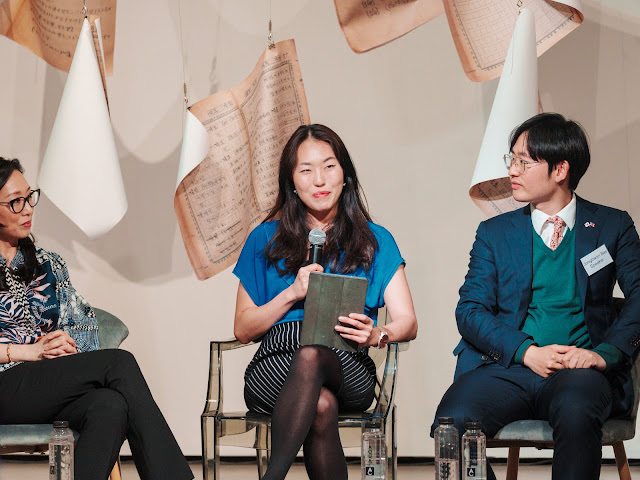
There’s also a real emotional depth in Korean storytelling. Through dramas, films, and music, you experience raw honesty and intensity that resonates across cultures. At the same time, Korea is incredibly forward-thinking—fast-paced, innovative, and constantly evolving, especially in technology and pop culture. What’s unique is how it balances that progress with a strong connection to tradition. You can feel the weight of history and values even in the most modern settings. That contrast—between old and new, rooted and dynamic—is part of what makes the culture so compelling.
Take the Netflix hit Demon Hunters, for example. It’s wildly popular because it weaves ancient folklore and spiritual themes into a sleek, modern narrative. You see traditional myths reimagined through cutting-edge visuals and contemporary storytelling—a perfect example of
Korea’s ability to honour its roots while pushing creative boundaries. All of this makes Korea feel like a place where connection truly matters. It’s not just about what you see or do—it’s about how you feel and how you’re made to feel by the people around you.
Kpopwise: Looking back, what do you consider the proudest milestone in your career so far?
Su-Min: Launching and leading the BBC’s Korean Service was an incredibly meaningful milestone. It’s rare to have the chance to build a service from scratch and set its strategy from day one.
Our team became known for innovative storytelling and fresh perspectives, earning the nickname ‘Paper of the Nation’ as a trusted news source people could rely on. We uncovered stories other outlets overlooked and made them resonate globally.
One of the most impactful aspects was broadcasting radio into North Korea—a country with some of the lowest press freedom in the world—giving people access to information they otherwise couldn’t reach.
Although I’ve since moved on to new challenges, the impact of that work continues to inspire me.
Kpopwise: If you could give advice to people looking to work in international media, what would it be? What should their main focus or etiquette be when reporting on Korean topics?
Su-Min: I think the best advice for anyone wanting to work in international media is to stay curious and never stop learning about the cultures you cover. It’s not enough to just tell a story—you need to understand the context behind it. That means digging into the history, the politics, and the social nuances, because that’s what gives your reporting real depth and credibility.
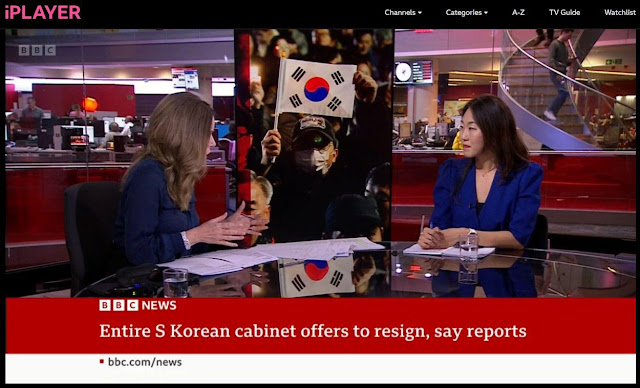
When it comes to Korean topics, I’d say don’t just rely on what mainstream Korean outlets are publishing for your source of information. There are structural limitations in the Korean media landscape—pressures from politics, business, and cultural norms—that can shape coverage.
So, look beyond the headlines, seek out diverse voices, and ask what’s missing from the narrative.
Kpopwise: What’s next for you? Are there any upcoming projects you’re particularly excited about?
Su-Min: I’m really excited about a couple of things right now. As a media consultant, I’ve been helping media companies break into the UK market—guiding them through cultural nuances, understanding content trends, and adapting their strategies for global audiences.
At the same time, I’m exploring ways to build a meaningful and sustainable bridge between Korea and the UK, especially in culture and media. There’s so much potential for deeper collaboration and storytelling that goes beyond the usual narratives.
On a more personal note, I’m passionate about food. I’d love to see Korean cuisine integrated in more creative ways and influencing global food trends. That’s why I’m currently attending culinary school—gaining foundational skills so I can experiment and develop Korean-inspired recipes. For me, it’s another way of telling stories, just through food instead of words.
Kpopwise: You’ve had quite an impressive career run so far. At the end of all this, what’s your goal?
Su-Min: My goal isn’t defined by a single title or destination—it’s about creating lasting impact. Throughout my career, I’ve focused on amplifying voices that often go unheard, and I want to keep doing that in bold, creative ways.
East Asian voices have been chronically under-represented in global media, and I want to help change that. I envision a future where East Asian stories aren’t just occasional features but are deeply woven into the fabric of mainstream storytelling—where representation on screen feels authentic and cultural narratives are treated with nuance and respect.
For me, cultural exchange is transformative. When cultures meet, it breaks down prejudices, sparks curiosity, and helps us see the world through a different lens. The Korean Wave has shown the power of cultural influence—it gave Korean talent a global stage and made millions proud. But it also exposed uncomfortable truths, like Korea’s gender inequality and societal pressures. I believe these conversations are healthy. They show that cultural exchange isn’t just entertainment—it’s a catalyst for progress.
Looking ahead, I want to keep building bridges between Korea and the UK, whether through media, consulting, or even food. I’m passionate about finding new ways to tell stories—stories that connect, challenge, and inspire. If, at the end of it all, I’ve helped create a world where diverse voices are not just heard but celebrated, I’ll consider that a success.
Follow Su-Min
Substack | Instagram | Linkedin
For more on The K-wave series click here.
